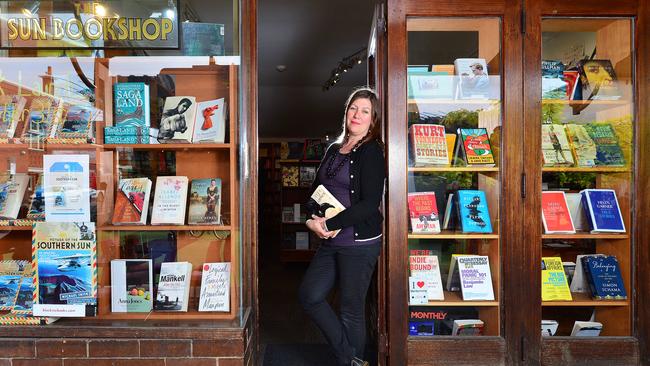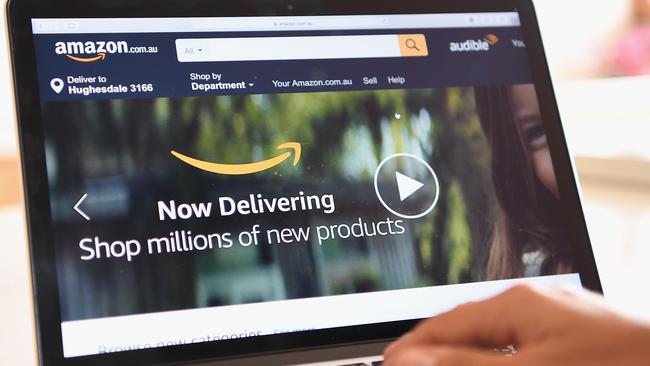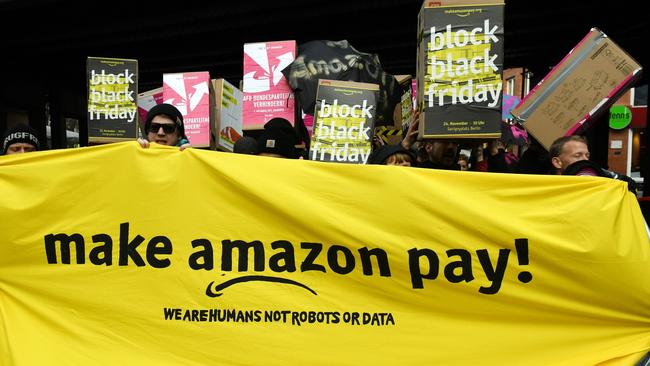David Penberthy: We’ll all pay for Amazon’s massive head start
THERE’S a difference between businesses failing because they didn’t adapt, and businesses failing because their competitors got a massive leg up from the government, writes David Penberthy.

Rendezview
Don't miss out on the headlines from Rendezview. Followed categories will be added to My News.
THE last thing Australia needs is a new tax or any increase in taxation. Logic tells you that the more you tax individuals, the less money they’ll spend. The more you tax businesses, the fewer people they’ll hire.
Having said that, there is one looming tax change that any Australian who wants to protect local jobs should support, and that is the long-overdue application of the GST on international online shopping.
Our slothful federal Parliament has given international retail giants a decade-long free kick in the online shopping space. Their ability to sell goods GST-free into Australia has given them a massive jump against local businesses which are already lumbered with expensive overheads in the form of rent, power bills, payroll, company, land tax and wages.
It is appalling that we have handed this head start to companies that, in some cases, have virtually no staff, but have gigantic product warehouses which use couriers to transport their gear across the planet.
Companies that pay no company tax in Australia, no payroll tax, no land tax, make no charitable or benevolent contributions to our communities, and would never let the local CFS or Rotary Club hold a sausage sizzle outside their (non-existent) stores.

This week saw the launch of Amazon in Australia, the American shopping juggernaut that will soon send you anything from a book to a box of bananas.
Shop ’til you drop has long been the mantra of the consumer age but, in 2017, the only thing that’s likely to drop off is your finger as hitting the mall makes way for a late-night spending binge on the couch armed only with a tablet or iPhone. From July next year, the GST will finally be applied on all international purchases worth less than $1000, with the responsibility placed on foreign suppliers to assess, collect and remit the tax.
The announcement has been met with a mercenary brand of anger from those with a commitment to nothing other than snaring a bargain. The anger has been at its most pronounced on social media from those younger members of the Uber generation who have no brand loyalty and are driven only by cost and convenience.
Economies change and brands come and go. Digital cameras smashed Kodak, one-hour photo stores are no more, fax machines are redundant… the list goes on.
But there is a difference between businesses folding because of a failure to adapt and innovate and businesses failing because their competitors are given an artificial advantage, such as the ability to duck a tax on consumption that their domestic competitors are all forced to apply. Those hungry shoppers who are obsessed with nothing other than price should look around their suburbs and city centres and ask themselves what the world will look like if things continue this way.
By my reckoning, the only business that is genuinely safe in the digital age is petrol. So many of the shops I used to frequent habitually are no more.

Almost every bookstore I ever shopped at has gone under. The big-name record stores that once had an outlet in every suburban mall have also gone.
The hospitality sector is now grappling with the rise of Uber Eats, where the need to pay waiters now makes less economic sense as diners become couch-based consumers.
Layering this new and ever-changing array of competition with entrenched unfairness within the tax system is the surest way to destroy local jobs. The worst current example is Airbnb.
A lot of people might assume that however their high street changes, the local hotel will always be safe. It’s a dubious assumption when it comes to the changing business models for accommodation.
Airbnb had a turnover of $440 million in Australia in 2015-2016 and according to Fortune magazine is on target to make annual international profits in excess of $3 billion by 2020.
Yet it is registered for tax purposes in Ireland, meaning it paid not one cent of tax in Australia and, unlike the local hotel, it paid no payroll tax, no wages or penalty rates, and has no requirement to install fire escapes and disability ramps.
Airbnb also wouldn’t give your son or daughter their first part-time job after school, sponsor your footy team, host an up-and-coming local band. We risk becoming a society that knows the price of everything and the value of nothing.
Gerry Harvey is right. It is perverse that we have entrenched that mentality in our tax system, giving the Amazons of the world such a ludicrous head start that our real local bricks-and-mortar businesses may never recover.



